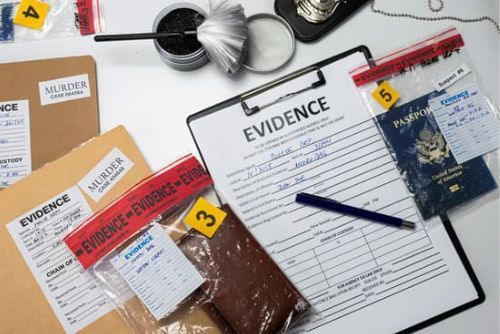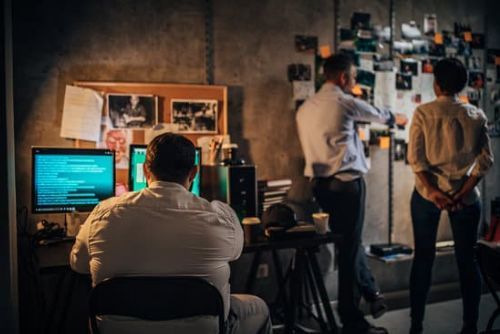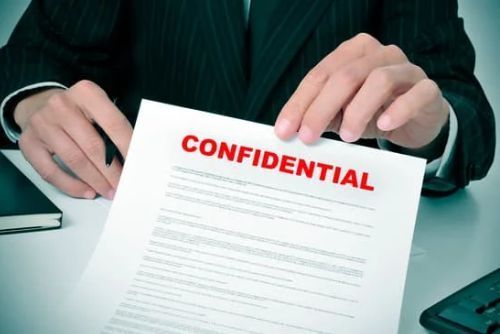How To Hire A Private Investigator

As someone who values innovation, I know that sometimes you need to think outside the box to solve a problem. That's where hiring a private investigator can come in handy. Whether you're trying to uncover the truth about a cheating spouse or gather evidence for a legal case, a skilled PI can be an invaluable asset.
But how do you go about finding and hiring the right person for the job? It can be overwhelming to navigate the world of private investigation, but with some guidance and preparation, it's possible to find exactly what you need.
In this article, I'll share my tips and insights on how to hire a private investigator, from asking the right questions to choosing someone with experience in your specific type of case. So let's dive in!
Questions To Ask When Hiring A Private Investigator
So, you're looking to hire a private investigator? Well, before you do, there are some important questions you should ask them.
The first question to ask is about their experience and qualifications. You want to make sure that the investigator has experience in the type of case you need help with and that they have the necessary licenses and certifications.
Another important question to ask is about their communication style. You want an investigator who will keep you informed throughout the process and who is responsive to your needs. Find out how often they will update you on progress and what methods of communication they prefer - email, phone calls or in-person meetings.
Lastly, it's crucial to ask about their approach to confidentiality.
A private investigator must maintain strict confidentiality at all times. Ask how they ensure that sensitive information stays confidential and what measures they take to protect your privacy during the investigation. People will always look after their security that's why it is important to maintain confidentiality as an investigator.
Now that we've covered some key questions when it comes to how to hire a private investigator, let's move on to discussing the job description overview. This will help us understand what tasks a private investigator can handle for us in more detail.
Job Description Overview

To understand the role of a private investigator, you'll want to take a closer look at what they do on a day-to-day basis. Generally, a PI is hired to gather information or evidence for individuals or businesses. They may work on cases involving infidelity, insurance fraud, missing persons, people with criminal cases, and more. Essentially, their job is to uncover facts that would otherwise be difficult or impossible to obtain.
The job description of a private investigator can vary depending on the specific case they are working on. However, some common tasks include conducting surveillance, interviewing witnesses and suspects, researching public records and databases of suspicious people, analyzing data and evidence, and preparing reports for clients or attorneys. They must also be skilled in using various types of equipment such as cameras and recording devices.
Overall, being a private investigator requires a unique set of skills including critical thinking, attention to detail, communication skills (both written and oral), and excellent investigative abilities. It's not just about following someone around with binoculars – it's about using all available resources to find answers that others couldn't uncover without professional assistance.
In the next section, we'll explore examples of different types of cases that PIs might work on regularly. A good private researcher will discover things hidden.
Examples Of Cases
You might be surprised at the variety of cases that PIs take on when you're hiring a private investigator. From investigating insurance fraud to tracking down missing people and more, there's no telling what kind of case will come across their desk.
Here are just a few examples:
- Surveillance: One of the most common types of cases is surveillance. This involves following someone to gather information about their activities or whereabouts. It could be a cheating spouse or an employee suspected of stealing from the company.
- Background checks: Another common type of case is conducting background checks on individuals or businesses. This could be for pre-employment screening or in preparation for litigation.
- Missing persons: PIs are often called upon to help find missing persons, whether it's a runaway teenager or an elderly person with dementia who wandered away from home.
When you hire a private investigator, it's important to understand the types of cases they handle and how they approach each one. By knowing what to expect, you'll be better equipped to choose the right person for your needs. In the next section, we'll discuss how to go about choosing the right PI for your case.
The body content of your post goes here. To edit this text, click on it and delete this default text and start typing your own or paste your own from a different source.
Choosing The Right Person To Hire

Finding the perfect fit for your case can be a challenge, but it's essential to select an investigator with experience and expertise in the specific area you need assistance with. Before hiring a private investigator, it's important to ask questions about their background, qualifications, and experience. You want someone who has dealt with similar cases before and knows how to handle your situation. Read on to know some tips for hiring a private investigator.
When choosing the right person, don't just rely on flashy websites or advertisements. Do some research and look at reviews from previous clients. It's also helpful to request references from the investigator themselves so you can speak directly with those who have worked with them before. This will give you a better understanding of their work ethic and professionalism.
To ensure that you are getting the best possible service, make sure that the private investigator is licensed and insured in your state. This will protect both you and them should anything go wrong during the investigation process.
Hiring a private investigator is not something to take lightly - it requires careful consideration of all factors involved in order to find the right person for your needs. As you start considering candidates, keep in mind that conducting background checks on potential hires is crucial when it comes to selecting an appropriate private investigator. These checks can reveal any red flags such as criminal records or falsified credentials of such people which may indicate that they are not suitable for your case.
With this information at hand, you'll be able to confidently move forward in finding an experienced professional who will provide reliable services tailored specifically towards helping solve your problem effectively.
The body content of your post goes here. To edit this text, click on it and delete this default text and start typing your own or paste your own from a different source.
Background Checks For Person Of Interest
Conducting thorough background checks is crucial when selecting a suitable candidate for your investigation needs. As a private investigator, I always advise my clients to request information about the investigator's past work experience and training, as well as any relevant licenses or certifications they may hold.
It's also essential to review their references and check if there are any complaints or disciplinary actions against them. When it comes to background checks, it's important to go beyond just reviewing an investigator's resume and references. You should also conduct a comprehensive criminal history check and verify their education and employment history.
Additionally, consider running a credit check on the private investigators you're considering hiring since this can reveal important financial details that could impact their ability to carry out your investigation effectively. Finally, don't hesitate to ask potential private investigators about their experience handling cases similar to yours in the past.
This will help you evaluate whether they have the skills needed to handle your investigation successfully. Ultimately, conducting thorough background checks is critical when choosing a private investigator who can deliver results efficiently and professionally.
Experience And Expertise

When it comes to hiring a private investigator, you want to make sure that they have the experience and expertise necessary to handle your case. This means looking beyond just their credentials and doing some research into their background.
You want someone who has a proven track record of success in similar cases and who can bring fresh ideas to the table. Experience is important because it shows that the investigator knows what they're doing and has dealt with similar situations before. They'll be better equipped to handle any challenges or obstacles that may arise during the investigation.
Expertise, on the other hand, refers to their knowledge and skills in specific areas such as surveillance, interviewing witnesses, or analyzing data. By choosing a detective with both experience and expertise, you increase your chances of getting the results you need.
Overall, when hiring a private investigator, take the time to thoroughly evaluate their experience and expertise before making a decision. Don't be afraid to ask for references or look for reviews online. Remember that this is an investment in your future, and you want someone who will provide quality service. With these factors in mind, you'll be well on your way to finding the right private detectives for your needs.
As important as experience and expertise are when hiring a private investigator, cost is also something that needs careful consideration. In the next section, we'll discuss how to budget for an investigation without breaking the bank.
Cost And Budgeting
One crucial aspect to keep in mind while budgeting is the cost of hiring a private investigator. It's important to understand that the cost can vary greatly depending on the type of investigation and the expertise of the investigator. Some investigators may charge hourly rates, while others may offer flat fees for specific services.
When considering the cost of hiring a private investigator, it's essential to think about your budget and what you're willing to spend. However, it's also important to remember that sometimes you get what you pay for. Hiring an investigator solely based on low prices could lead to poor results and ultimately wasting money.
If you're struggling with budgeting for a private investigator, here are three things to consider:
- The potential consequences of not finding out the truth
- The peace of mind that comes with closure
- The value of protecting yourself or your business from harm
When looking at these factors, it becomes clear that investing in an experienced and skilled private investigator can be worth every penny. In order to make sure you get your money's worth, be sure to thoroughly research potential investigators before making a decision.
Moving forward into selecting an appropriate investigator for hire requires effective communication skills in both parties involved.
Communication And People Skills

Now that we've talked about budgeting and costs, let's move on to another important aspect of hiring a private investigator - communication skills. When it comes to investigating a sensitive matter, clear and effective communication is key.
One example of the first questions you
should ask when hiring a private investigator is how they plan to communicate with you throughout the investigation process. Will they provide regular updates? Are they available for phone calls or meetings as needed? A good investigator will understand the importance of clear and timely communication with their clients.
Another important aspect of communication skills in this field is the ability to gather information from sources. Private investigators must be skilled at asking the right questions and eliciting information in a tactful and professional manner. This requires not only verbal communication skills but also strong listening abilities, as investigators must pay close attention to subtle cues and details in order to gather accurate information.
When it comes to hiring a private investigator, don't underestimate the importance of strong communication skills. From keeping you informed throughout the investigation process to gathering crucial information from sources, effective communication can make all the difference in achieving your desired outcome.
As we have seen, effective communication skills are crucial when hiring a private investigator. However, it's important to note that this is just one piece of the puzzle when it comes to finding an ethical and professional investigator who can deliver results.
In our next section, we'll dive into what other qualities you should look for when seeking out investigative services.
Ethics And Professionalism
To ensure you receive reliable and trustworthy investigative services, it's important to consider the ethics and professionalism of potential private investigators. You want to work with someone who demonstrates a strong code of ethics that aligns with your values.
Professionalism is equally important as it ensures that the investigator you hire will act in a manner that reflects positively on you.
When considering an investigator's ethics, look for someone who is transparent about their methods and practices. They should be willing to answer any questions you have about their approach and provide clear explanations for any actions they take. Additionally, reputable investigators will adhere to all legal and ethical guidelines while conducting their work.
Hiring an investigator who exemplifies professionalism means working with someone who is highly organized, punctual, and dependable. A professional investigator understands the importance of confidentiality and discretion in their line of work. By choosing a candidate who values these traits, you can rest assured that they will handle your case with the utmost care and diligence.
With a solid understanding of what ethics and professionalism look like in private investigation services, it's time to move on to discussing the scope of services offered by potential candidates.
The body content of your post goes here. To edit this text, click on it and delete this default text and start typing your own or paste your own from a different source.
Scope Of Services

When searching for investigative services, it's important to understand the full range of offerings available. A private investigator can provide a variety of services, including but not limited to surveillance, background checks, and skip tracing. It's essential to determine which services you need before hiring a private investigator.
The scope of services provided by private investigators may vary depending on their expertise and years of experience. Some investigators specialize in certain types of cases such as cheating spouses or corporate investigations. Others may offer a wide range of investigative services that cover different areas such as insurance fraud or missing persons cases. Be sure to research the investigator's background and ask questions about their experience in handling cases similar to yours.
Knowing the scope and price of their services offered by a private investigation firm is crucial when making an informed decision on who to hire. Take time to evaluate your needs and select an investigator who specializes in your particular case type.
In the next section, we will discuss how contracts and agreements play an important role in ensuring successful outcomes for both parties involved.
The body content of your post goes here. To edit this text, click on it and delete this default text and start typing your own or paste your own from a different source.
Contract And Agreement
Contracts and agreements are essential in ensuring a successful outcome for both parties involved in hiring a private investigator. A contract is a legally binding agreement that outlines the scope of services, fees, and timelines for the investigation. An agreement will protect both you and your investigator from any misunderstandings or disputes that might arise throughout the course of the investigation.
When drafting your contract and agreement, it's important to include specific details about what you expect from your investigator. Here are some items that should be included:
- Payment terms
- The expected duration of the investigation
- The estimated cost of services
- Any restrictions on how the information gathered during the investigation can be used
- A confidentiality clause
By including these items, you'll have a clear understanding of what to expect from your hired private investigator. You'll also have an agreement in place that will protect both parties if anything goes wrong.
Confidentiality and privacy are two critical components when hiring a private investigator. It's crucial to ensure that all aspects of your case remain confidential and are not disclosed to anyone outside of those involved in the investigation.
In my next section, I'll discuss confidentiality and privacy best practices when working with a private investigator.
The body content of your post goes here. To edit this text, click on it and delete this default text and start typing your own or paste your own from a different source.
Confidentiality And Privacy

Now that we've covered the importance of contracts and agreements in hiring a private investigator, let's talk about another crucial aspect: confidentiality and privacy. When you hire a PI, you're trusting them with deeply personal and sensitive information. Therefore, it's essential to ensure that your PI prioritizes confidentiality and respects your privacy.
A trustworthy PI should have strict policies in place to protect their clients' information. They should be able to provide detailed information on how they safeguard client data, including what measures they take to prevent unauthorized access or disclosure of sensitive information. Additionally, they should be willing to sign a nondisclosure agreement if necessary.
It's important to remember that confidentiality goes both ways. Not only does your PI need to keep your information confidential, but you also need to avoid sharing details about the investigation with anyone else without the PI's permission. By working together and establishing clear expectations around confidentiality from the outset, you can ensure that both parties are on the same page regarding privacy concerns.
Moving forward in this guide on how to hire a private investigator, our next focus will be on timeline and expectations. It's important for clients to understand how long an investigation may take as well as what results they can reasonably expect within a given time frame.
The body content of your post goes here. To edit this text, click on it and delete this default text and start typing your own or paste your own from a different source.
Timeline And Expectations
As you move forward in your search for investigative services, it's important to understand the timeline and expectations surrounding the investigation. Hiring a private investigator is not an instant process; it requires time and patience to ensure that every aspect of the case is investigated thoroughly.
The timeline will depend on several factors such as the complexity of the case, the availability of resources, and how quickly you can provide necessary information. During our initial consultation, we will discuss these factors and agree upon a reasonable timeline for completion.
However, it's essential to keep in mind that investigations are unpredictable and can be subject to delays beyond our control. Communication is key during this process, and we will keep you updated regularly regarding any changes or progress made on your case.
By understanding what to expect throughout the investigation process, you can have peace of mind knowing that everything possible is being done to achieve your desired outcome. Our way to hire a private investigator ensures transparency from beginning to end so that you know exactly what steps are being taken on your behalf.
In our next section about 'follow-up and review,' we'll go over why staying involved throughout the investigation is crucial for success.
Follow-up And Review

Staying involved and regularly following up on the progress of your case is crucial for ensuring that you receive the justice and closure you deserve. As you continue your journey through hiring a private investigator, it's important to ask questions and stay informed about their investigation. This can help keep both parties accountable and ensure that there are no miscommunications or misunderstandings along the way.
To evoke an emotional response in our audience, let's consider two scenarios: In the first scenario, imagine discovering that your hired private investigator has not made any progress on your case after several months of waiting. The frustration and disappointment would be overwhelming, as you had trusted this person with sensitive information and expected them to deliver results.
On the other hand, imagine receiving regular updates from your private investigator on their findings and progress towards solving your case. This type of communication fosters a sense of trust between both parties and provides peace of mind knowing that they are actively working towards finding a resolution.
In light of these scenarios, it's clear why follow-up and review are such important steps in hiring a private investigator. By staying engaged throughout the investigation process, you can ensure that things are moving forward as planned while also gaining insight into how they work.
Ultimately, this will allow you to make more informed decisions about whether or not to continue working with them or seek out another professional who might better suit your needs.
As we move onto discussing references and testimonials in the next section, it's worth noting how closely related this step is to follow-up and review. After all, positive reviews from past clients can provide valuable insights into what it was like working with a particular private investigator - including their level of communication during investigations. With that said, let's dive deeper into this topic by exploring how references can help guide your decision-making process when searching for a trustworthy PI partner.
The body content of your post goes here. To edit this text, click on it and delete this default text and start typing your own or paste your own from a different source.
Work Example, References, And Testimonials
Imagine scrolling through a website filled with glowing testimonials from satisfied clients, each one praising the
skills and expertise of an experienced private investigator. It's natural to feel a sense of relief knowing that you're not alone in seeking help from an outside source to solve your problems.
And while references and testimonials can be incredibly persuasive, it's important not to rely solely on them when hiring a private investigator. References are crucial when it comes to finding the right private investigator for your needs. A good investigator will have several references readily available upon request, and you should take the time to follow up with each one. Ask specific questions about their experience working with the investigator and whether they were satisfied with the results. Don't hesitate to ask for additional references if needed - this is your opportunity to ensure that you're making an informed decision.
Testimonials can also provide valuable insights into an investigator's capabilities, but it's important to approach them with a critical eye. Look beyond the positive comments and seek out any potential red flags or warning signs. Keep in mind that testimonials may not always represent a balanced view of an investigator's work example, so it's essential to verify any claims made by contacting references directly.
With careful consideration of both references and testimonials, you'll be well on your way towards hiring a private investigator who can deliver results tailored specifically for you.
Final Thoughts
Well, that's it, folks! I hope you've found this guide on how to hire a private investigator helpful. When hiring a PI, it's important to ask the right questions, provide a detailed job description, and choose someone with experience in your specific type of case.
Don't forget to conduct background checks and ensure they prioritize confidentiality and privacy. Set clear expectations for timelines and follow-up communication.
And finally, always check references and testimonials before making your final decision. With these tips on
how to hire a private investigator, you can feel confident in finding the right private investigator to help you uncover the truth. Good luck!
Frequently Asked Questions
What Are Some Red Flags To Watch Out For When Hiring A Private Investigator?
When it comes to hiring a private investigator, there are definitely some red flags that you should be aware of.
For one thing, if the PI is making promises that sound too good to be true, then they probably are. Also, if they're not willing to give you references or provide proof of their credentials and experience, then that's a big warning sign.
Another thing to watch out for is if the PI seems more interested in getting paid than actually helping you with your case.
Finally, if the PI doesn't seem like someone you can trust or communicate effectively with, then it may be time to look elsewhere for help.
Remember: hiring a private investigator is an important decision that shouldn't be taken lightly!
How Do Private Investigators Ensure That They Are Complying With Legal And Ethical Standards?
As a private investigator, I'm responsible for ensuring that I comply with legal and ethical standards at all times. This means staying up-to-date on the latest laws and regulations related to my profession. I also adhere to a strict code of ethics that outlines proper conduct for investigators.
In addition, I make sure to maintain open communication with my clients throughout the investigation process. I keep them informed of any developments or concerns that may arise. By prioritizing transparency and professionalism in my work, I'm able to provide reliable and effective services while maintaining the highest levels of integrity.
Can Private Investigators Work On Cases Outside Of Their State Or Region?
Yes, as a private investigator, I'm able to work on cases outside of my state or region.
However, it's important to note that each state has its own set of laws and regulations for private investigators. Before taking on a case in another state, I make sure to research and understand the specific laws and licensing requirements for that area.
Additionally, working on out-of-state cases may require me to obtain additional licenses or permits. Overall, while there are logistical considerations when working on cases outside of my usual area, it's possible for me as a private investigator to do so with proper preparation and adherence to legal requirements.
How Do Private Investigators Stay Up-To-Date On New Technologies And Investigative Techniques?
As a private investigator, staying up-to-date on new technologies and investigative techniques is crucial to my success.
I make it a priority to attend industry conferences and seminars, read relevant literature, and network with other investigators to learn about the latest advances in our field.
Additionally, I invest in the newest tools and software to ensure that I'm equipped with the most cutting-edge technology available. By constantly learning and adapting, I'm able to provide my clients with the best possible service and results.
In today's fast-paced world of innovation, it's essential for private investigators like myself to stay ahead of the curve.
What Kind Of Liability Insurance Should A Private Investigator Have?
As a private investigator, I always make sure to have liability insurance in case something goes wrong during an investigation. The type of liability insurance needed can vary depending on the specific services offered by the investigator and their location.
General liability insurance is a good starting point, as it covers any bodily injury or property damage that may occur during an investigation. However, some investigators may also need professional liability insurance, which protects against claims of negligence or errors and omissions while providing investigative services.
It's important to consult with a trusted insurance agent to determine the appropriate coverage for your individual needs and ensure that you're fully protected in case of any unforeseen situations.
The body content of your post goes here. To edit this text, click on it and delete this default text and start typing your own or paste your own from a different source.













